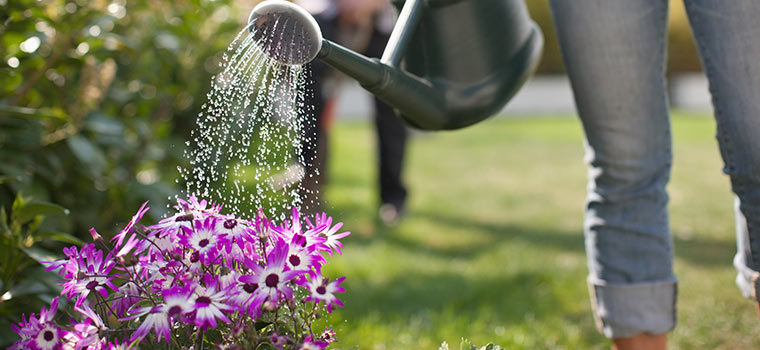Summer watering is precarious. When I get frustrated at my plants it’s because they’re dying and I know it’s all my fault. In fact, this is why I kept giving up on gardening before I worked for Breck’s. Most commonly, I’ve forgotten to water my plants or in fear of forgetting to water them, I watered them so much they drowned. It is one of the most uncertain things; it’s something you have to constantly adjust and check and beg and plead with your plants about. But working here has taught me that it doesn’t have to be all gloom and doom:
- You want to water the roots, not the leaves. Roots are where your flowers take in the water, and if leaves remain wet for long enough, it can lead to disease.
- Water in the morning. That way, they are prepared for the heat of the day with plenty of water, and if any water does get on the foliage it can dry. If you’re watering in the evening, the sun won’t get to the leaves quick enough to dry them and prevent disease.
- The next trick is to use the right watering tool. A sprinkler is for grass, not so much for flowering plants. Again, the water gets on the leaves instead of down near the roots. What you want to do is get a soaker hose or a watering can without a rose, so you can let the water softly seep straight into the soil.
- Also, let plenty of water soak into the ground, as the roots are generally 6-12 inches down. This is tricky, because at the same time you don’t want to overwater. There’s no standard measurement I can give you to get this done right. You can try a timed experiment; water for a certain amount of time, dig down 6-12 inches and see if it’s properly soaked, or too dry or muddy.
- A trick for deeper root development—frequent, light waterings cause roots to grow shallowly to look for water closer to the surface. If you give only 1-2 longer baths per week, the roots will grow deeper and cement your flowers better.
- Then there’s always the trouble of rain. It may be helpful, but you have to be perceptive. Remember to check the soil and the leaves after a rain.



